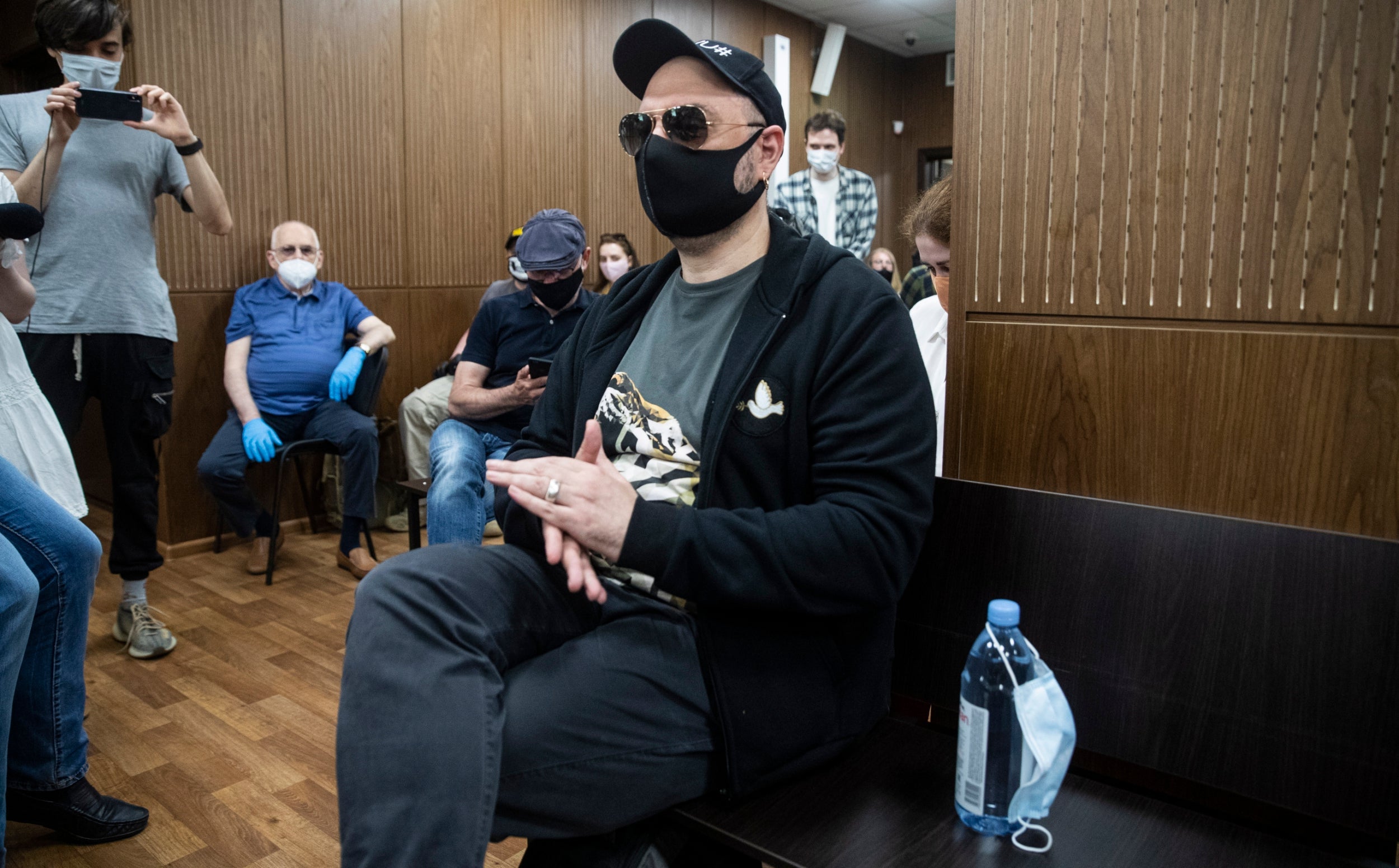Kirill Serebrennikov: Russian court hands taboo-breaking director suspended sentence
Judge finds Serebrennikov guilty of fraud, but surprises many by stopping short of jail time

Your support helps us to tell the story
From reproductive rights to climate change to Big Tech, The Independent is on the ground when the story is developing. Whether it's investigating the financials of Elon Musk's pro-Trump PAC or producing our latest documentary, 'The A Word', which shines a light on the American women fighting for reproductive rights, we know how important it is to parse out the facts from the messaging.
At such a critical moment in US history, we need reporters on the ground. Your donation allows us to keep sending journalists to speak to both sides of the story.
The Independent is trusted by Americans across the entire political spectrum. And unlike many other quality news outlets, we choose not to lock Americans out of our reporting and analysis with paywalls. We believe quality journalism should be available to everyone, paid for by those who can afford it.
Your support makes all the difference.It was a melodrama that lasted 90 court sessions. When the final curtain fell, and the judge issued a three-year suspended sentence to director Kirill Serebrennikov, the audience that had gathered outside the courtroom breathed a collective sigh of relief.
Few of the 500 or so friends and journalists there expected such a benign course of events. Judge Olessia Mendeleyeva’s verdict, stretched over five and a half hours, seemed to leave little possibility of the celebrated creative being allowed to walk free.
Early on, Ms Mendeleyeva quashed any hopes of a non-guilty verdict by declaring Serebrennikov responsible for “forming a criminal syndicate” to defraud the Russian state of 129 million roubles (£1.5m). The money relates to grants awarded by then-president Dmitry Medvedev to develop experimental theatre.
Serebrennikov’s co-defendants, the theatre manager Alexey Malobrodsky, and producer Yury Itin, were also found guilty of participating in the fraud. Another co-defendant, the former culture ministry official Sofia Apfelbaum, was deemed guilty of the lesser crime of negligence.
In unexpectedly sentencing Serebrennikov, Malobrodsky and Itin to suspended sentences of two to three years, Ms Mendeleyeva said she was taking into account good character references and state awards. Apfelbaum was meanwhile fined 100,000 roubles (£1,200).

Ostensibly focused on grey accountancy in the arts, the three-year trial has been alternatively interpreted as an attack on artistic freedoms.
Throughout the trial, allegations of serious financial impropriety by any of the defendants were never truly convincing, and proceedings have frequently bordered on the absurd.
State investigators initially accused the defendants of embezzling money that was meant for a play that never ran. In fact, A Midsummer Night’s Dream not only saw the light of day, it received theatre awards and continues to fill halls.
For a long time, prosecutors and the culture ministry could not decide on the amount supposedly embezzled.
The first claim was 216 million roubles (£2.5m), which then became 133 million roubles (£1.5m), and finally 128.9 million roubles. Investigators presented different versions of the same witness statements, suggesting the method of obtaining them had not been wholesome.
When one of the defendants insisted signatures in documents were forged, the judge refused to investigate.
Much of the prosecution’s case rested on the evidence of Nina Maslayeva, the group’s former accountant, who claimed the defendants conspired with her to run parallel, cash-in-hand accounts.
Serebrennikov’s supporters say the former accountant was blackmailed to give evidence against them. At trial, Ms Maslayeva’s former assistant attested that she had been pressured to give evidence against the group. The accountant was elderly, in poor health, and had a previous court conviction hanging over her, so prosecutors certainly had leverage.
The judge dismissed the suggestion of blackmail or pressure from investigators. Claims to the contrary were “baseless”, Ms Mendeleyeva said.
Given the small level of the grants involved, most analysts assume the state’s initial beef with the groundbreaking creative was not only about cash.
It seems likely that Serebrennikov’s brand of experimental, taboo-breaking theatre, which often covers themes of protest, God and homosexuality, made him a target for conservative political elites. Taking money to produce that art may also have been a factor.
But even if Serebrennikov had enemies in government, he had supporters there too. Two of the president’s closest allies — his spokesperson Dmitry Peskov and former deputy prime minister Aleksei Kudrin — have spoken out in support of the director.
After Serebrennikov was released from house arrest in April last year, there were hopes authorities would find room for compromise. With acquittal rates running at less than 0.1 per cent in Russian trials, a non-guilty verdict was not on the cards. But many hoped the state would seek non-custodial sentences.
Monday’s news that prosecutors were requesting real sentences from four to six years came as a bolt from the blue, and shocked Serebrennikov’s legal team.
Serebrennikov talked to some of that frustration in a final admission delivered on Monday, in the session before sentencing. It was delivered in typically conceptualised code, with the first letters of each paragraph spelling out his own verdict. “I don’t regret anything,” the code read. “I pity you.”
In the event, the director emerged from sentencing a free man. Thanking his supporters after the verdict, the obviously relieved director insisted he was not guilty of any crime.
“Thank you for believing in our innocence,” he said. “You have to fight for justice.”
Serebrennikov’s lawyer confirmed he intended to appeal the criminal conviction.
Join our commenting forum
Join thought-provoking conversations, follow other Independent readers and see their replies
Comments